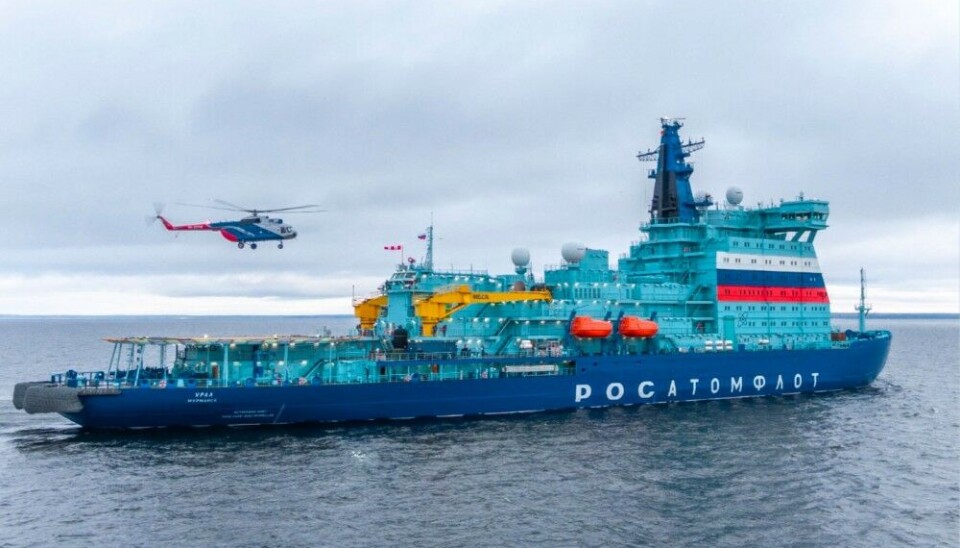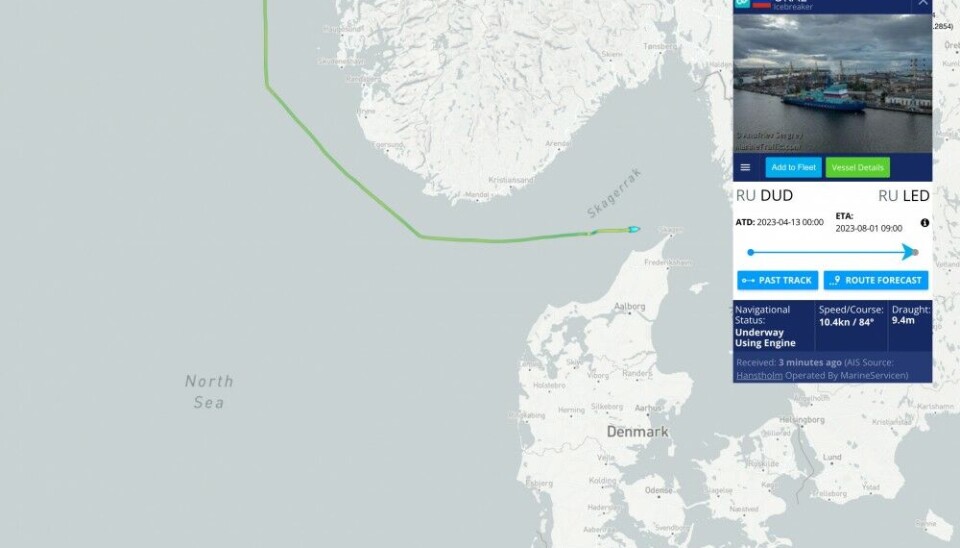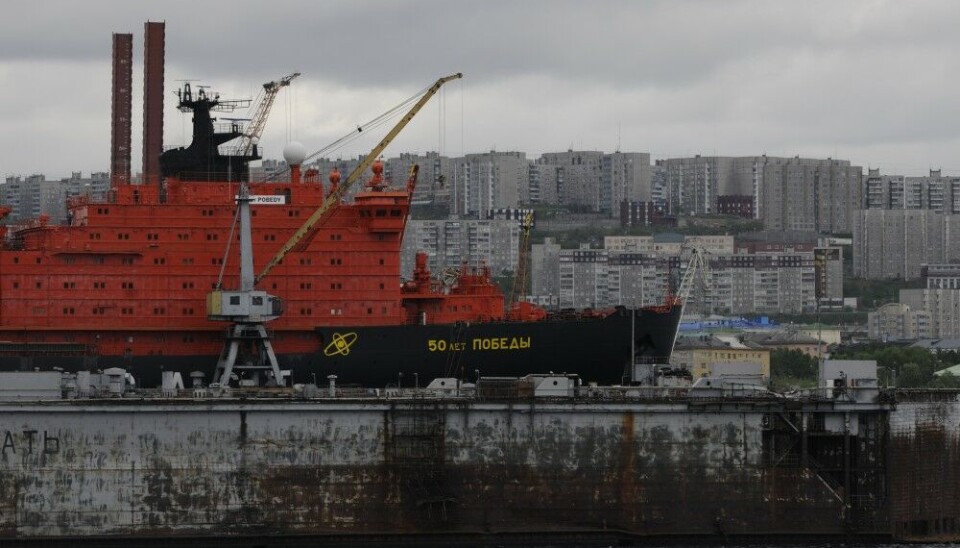
Less than a year after launch, Russia's newest nuclear icebreaker sails back to St. Petersburg yard
As Russia lacks big floating docks up north, the giant “Ural” icebreaker has to sail all around Scandinavia to Kronstadt Marine Yard for repair and inspection of the hull and propeller system.
It has been a busy winter and spring season for the world’s only fleet of civilian nuclear-powered icebreakers. So also for the most powerful ships of the latest generation, including the “Ural”. The icebreaker set a direct course from the Kara Sea towards St. Petersburg without any port call to the service base outside Murmansk.
On Friday, “Ural” is already in Skagerrak, sailing into Danish waters before entering the Baltic Sea.
The 173-meter-long light-bluish icebreaker with the Russian tricolor painted on each side had her maiden voyage in the same waters in late November last year. Initially, the “Ural” was scheduled for 2020, but the launch was postponed to 2022 because of delivery problems of the steam turbines.

Russia previously bought turbines for the icebreakers from Kharkiv Turbine Plant in Ukraine, a supplier that for obvious reasons no longer makes deliveries to its neighbouring war aggressor.
Despite being home to both the nuclear icebreaker fleet and a major hub for Arctic shipping, Murmansk lacks suitable floating docks and dry-docking facilities. The sinking of the huge PD-50 dock at Shipyard No. 82 in 2018 didn’t make the situation better up north better.
The dock sank while maintenance work was in progress on the navy carrier “Admiral Kuznetsov”. Rosatomflot has signed a contract to take delivery of a new big floating dock from a Turkish Yard by December 2024. Meanwhile, the newest icebreakers have to sail to St. Petersburg for under waterline hull inspections and repair.
Rosatomflot informs that a smaller dock at the base in Murmansk will be used for the “Yamal” icebreaker this summer. Docking will also be carried out for the “50 Let Podbedy” and the two shallow water icebreakers “Taimyr” and “Vaigach”.

The winter season of 2022-23 has been the busiest ever since the breakup of the Soviet Union for the nuclear icebreaker fleet, as previously reported by the Barents Observer.
Putin and the Russian government give high priority to Arctic shipping, as liquid fossil gas sent to markets in Asia with tankers takes over the market lost in Europe due to sanctions.
The “Ural” is the third in the new class of powerful icebreakers. Two more similar vessels, the “Yakutia” and “Chukotka” are currently under construction and will when launched give an additional boost to Russia’s export of petroleum products from the north coast of Siberia to Japan, China, and India via the Northern Sea Route.














